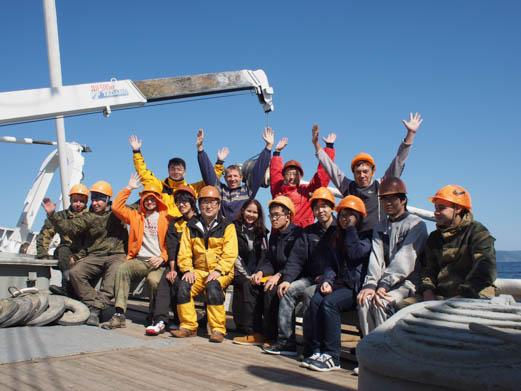Japanese expedition
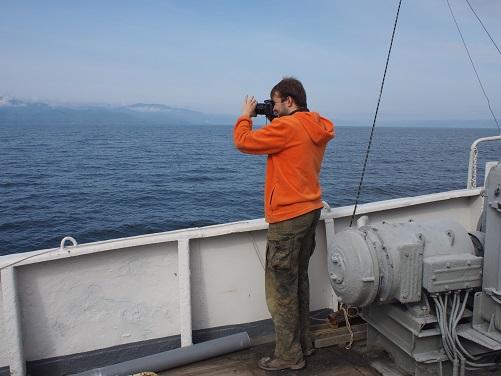
Initially, I did not even plan to work on the Baikal for an additional 10 days, but fate decreed otherwise. At the end of the TTR cruise, Grigory Georgievich asked me and offered to stay with the next expedition to process the core photos. I thought for a couple of seconds: “Maybe I should give it up cause I’m tired and so on and so on?”. It's still 10 days away from home, besides, there was already accumulated fatigue.
But, on the other hand, the opportunity to communicate with the Japanese seemed very tempting. In addition, they can give me a completely unique research experience in marine geology.
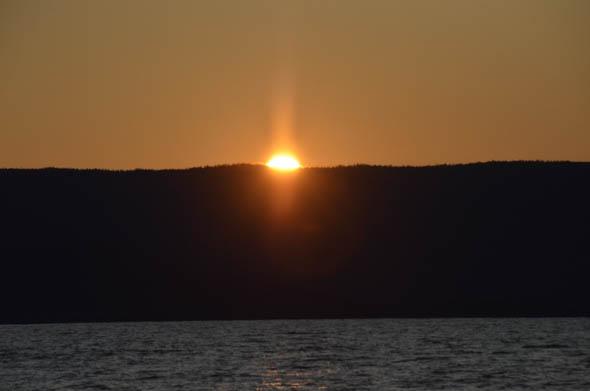
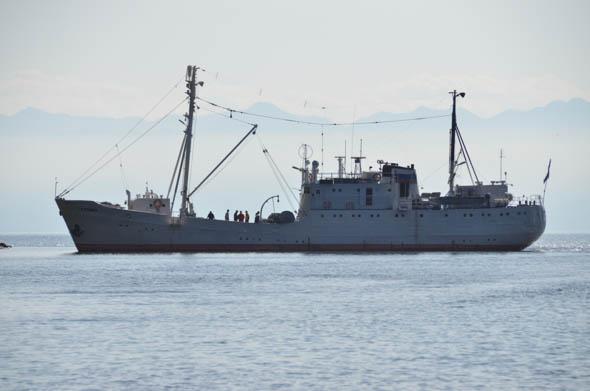
And here I am, driven by curiosity, return to the deck of the ship, not having stayed on a land even a single day. After a general photo of the old and new scientific teams from TTR and the University of Kitano, we set out on the road. Also, there’s an update in the Russian-speaking research team: there were guys from the Irkutsk technical school, translator Julia, Anton and Egor, as well as Andrei and Volodya, who participated in the first TTR leg.
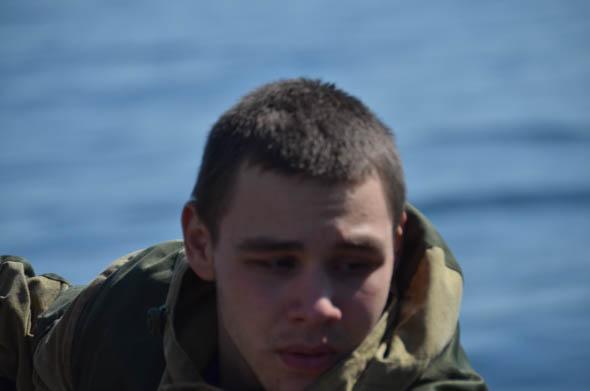
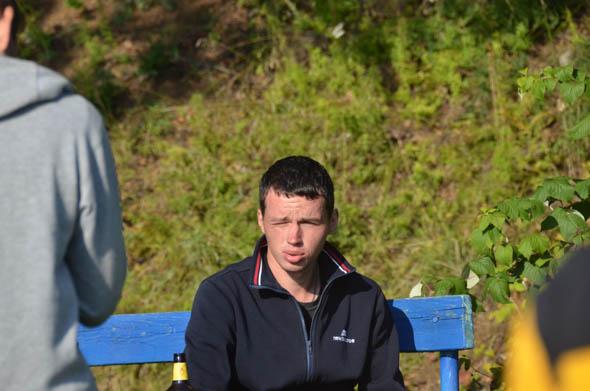
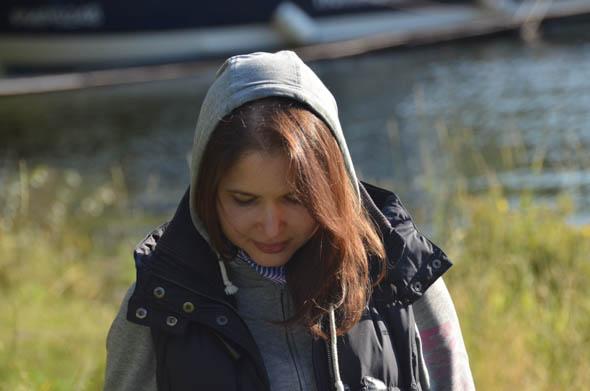
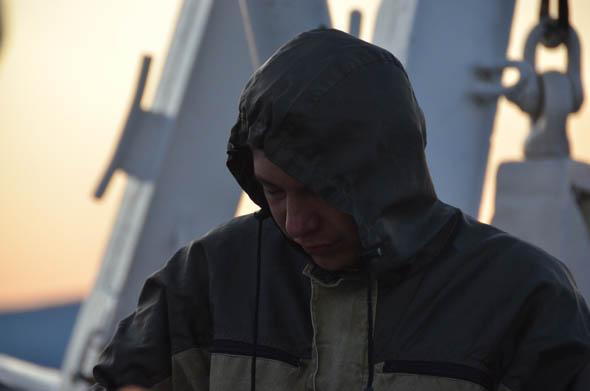
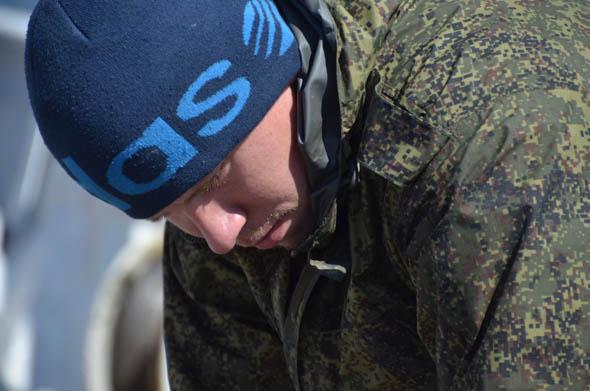
The work was in full swing. Overcoming all sorts of mistakes, we began to bring our skills to automaticity, began to understand each other without a single word. Fortunately, the first day was not so intense, you could afford to relax and make up for hours of lost sleep. It seems that I dreamed of this only, and the rocking ship had been inviting me to sleep more strongly. What could have been better? Yes, I know that chilling on a ship is dangerous, because when you lose concentration and show levity, you get in the most stupid and traumatic troubles. Remembering this, I tried to be as concentrated as possible from the very morning. It's time to work. The problem is that the weather was totally against my plan.
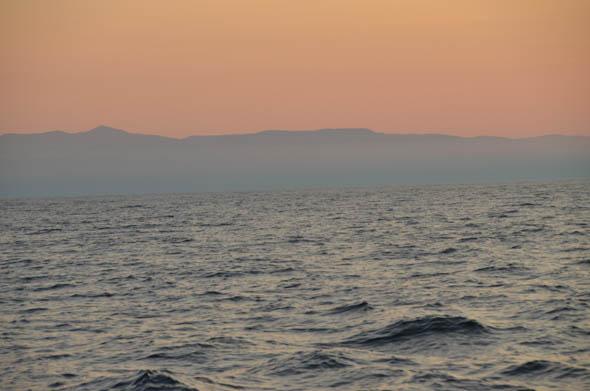
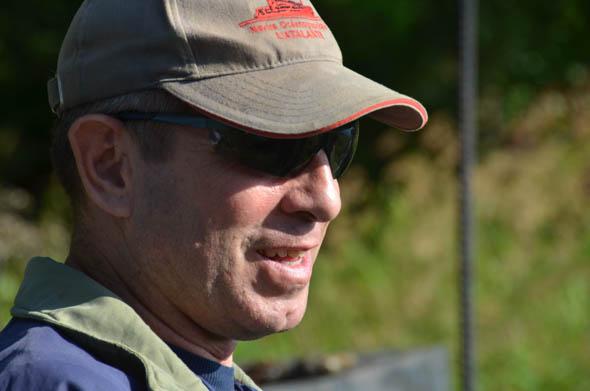
As noted by the main baikal expert of the ship, Oleg Mikhailovich, such a prolonged storm and cold weather - things are phenomenal for the August. Indeed, phenomenal, I thought, rather went to my cabin to sleep on my dreams. There is a tradition on the ship that geologists have to “poburhanit” in the first evening of the expedition, thus provoking the local deity, Burkhan. Despite the fact that all the rituals were conducted in accordance with local canons, Burkhan seemed to read my hidden secret, deciding to give students some free time. In any case, the video of the storm turned out fine.
The next day the weather became much better and we began to process the core tubes in the very intensive mode. When I had some off-duty time, I helped the guys on the deck.
Well, now I can start to get acquainted with the Japanese! The Japanese brigade arrived in the crew consisted of three teachers and their students. Minami-san, Hachikubo-san and Yamashita-san were very open to any dialogue, willingly interpreting the goals and objectives of their expedition. Lovely people, very cheerful and sociable. They regaled us with a lyophilized Japanese soup. We, in turn, regaled them with a roasted omul. Apparently, both sides were satisfied.
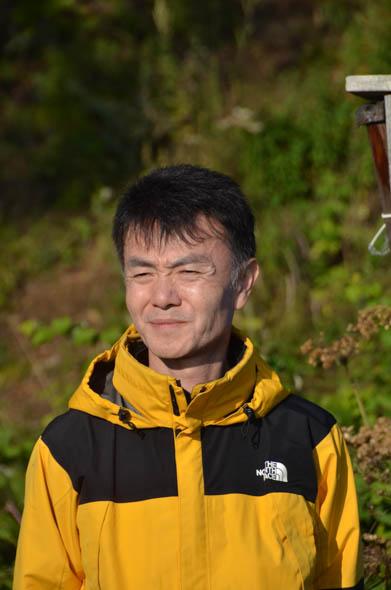
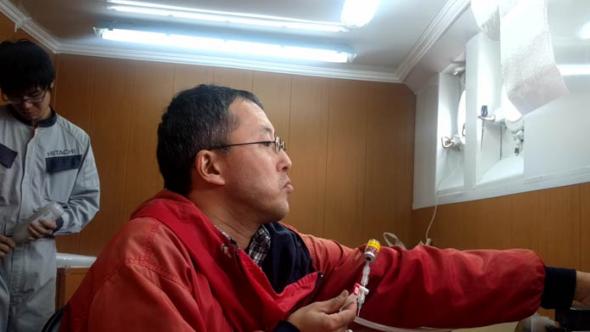
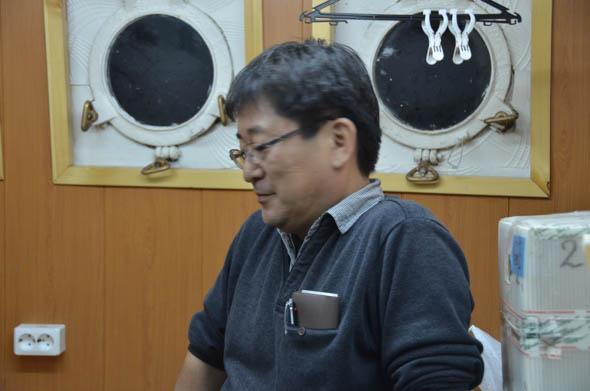
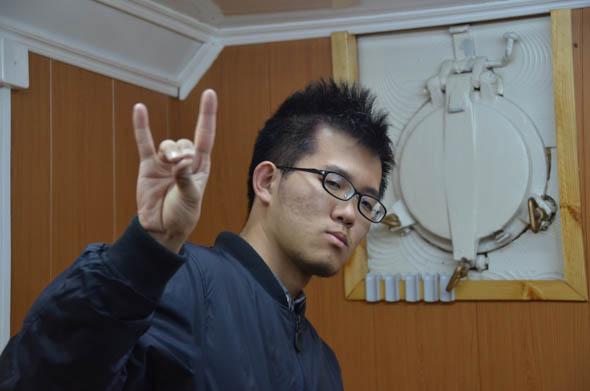
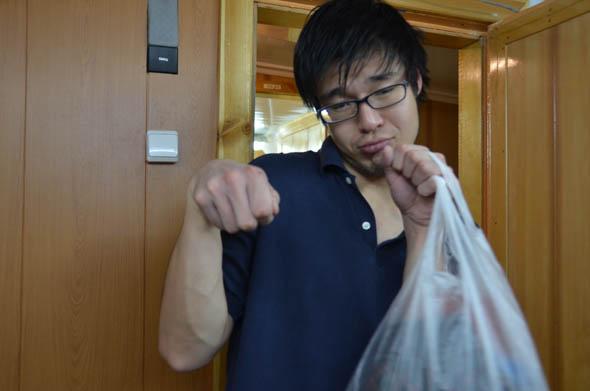
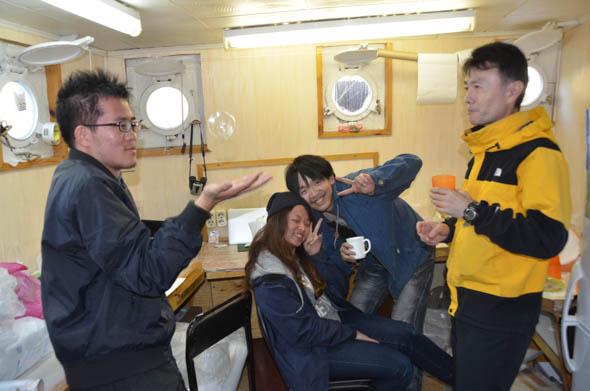
What is striking in their style of work is the quality of research and the overall level of accuracy. The sample processing algorithm is sharp and contains very important differences compared to ours. For example, for greater sterility, helium is pumped in samples while an air pumps out, guaranteeing the very absence of unnecessary impurities in further analysis.
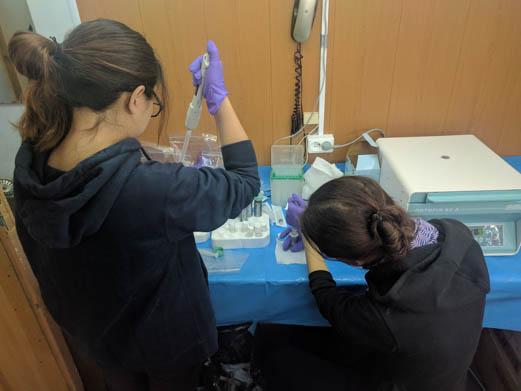
Overall, 今日は & 乾杯
